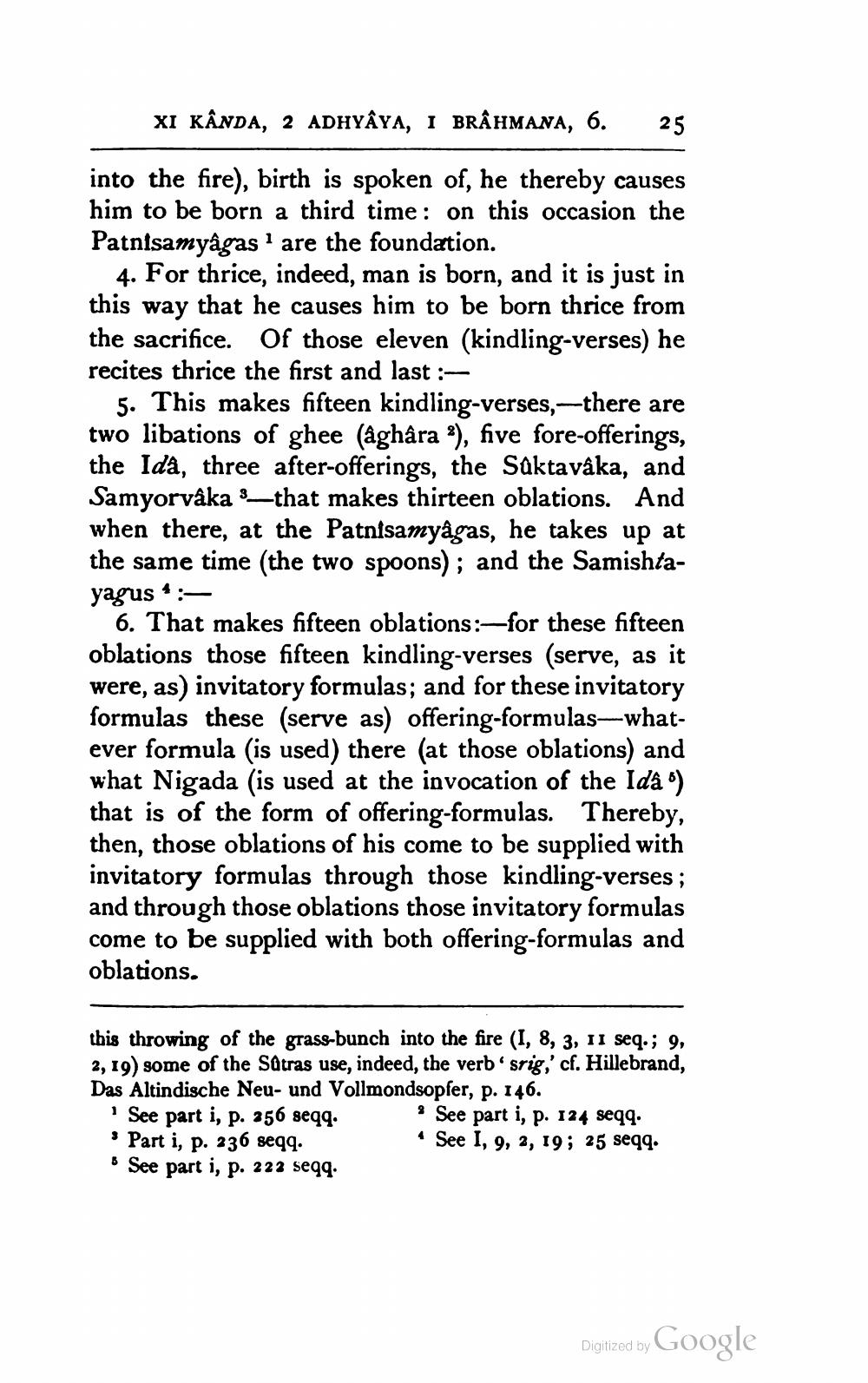________________
XI KÂNDA, 2 ADHYÂYA, I BRÂHMANA, 6.
25
into the fire), birth is spoken of, he thereby causes him to be born a third time: on this occasion the Patnisamyâgas are the foundation.
4. For thrice, indeed, man is born, and it is just in this way that he causes him to be born thrice from the sacrifice. Of those eleven (kindling-verses) he recites thrice the first and last :
5. This makes fifteen kindling-verses, there are two libations of ghee (âghâra ), five fore-offerings, the Idà, three after-offerings, the Säktavaka, and Samyorvåka —that makes thirteen oblations. And when there, at the Patnisamyågas, he takes up at the same time (the two spoons); and the Samishtayagus * :
6. That makes fifteen oblations:—for these fifteen oblations those fifteen kindling-verses (serve, as it were, as) invitatory formulas; and for these invitatory formulas these (serve as) offering-formulas-whatever formula (is used) there (at those oblations) and what Nigada (is used at the invocation of the Idå ") that is of the form of offering-formulas. Thereby, then, those oblations of his come to be supplied with invitatory formulas through those kindling-verses ; and through those oblations those invitatory formulas come to be supplied with both offering-formulas and oblations.
this throwing of the grass-bunch into the fire (I, 8, 3, 11 seq.; 9, 2, 19) some of the Sätras use, indeed, the verbsrig,' cf. Hillebrand, Das Altindische Neu- und Vollmondsopfer, p. 146.
See part i, p. 356 seqq. * See part i, p. 124 seqq. : Part I, p. 236 seqq.
• See I, 9, 2, 19; 25 seqq. • See part i, p. 222 seqq.
Digitized by Google




